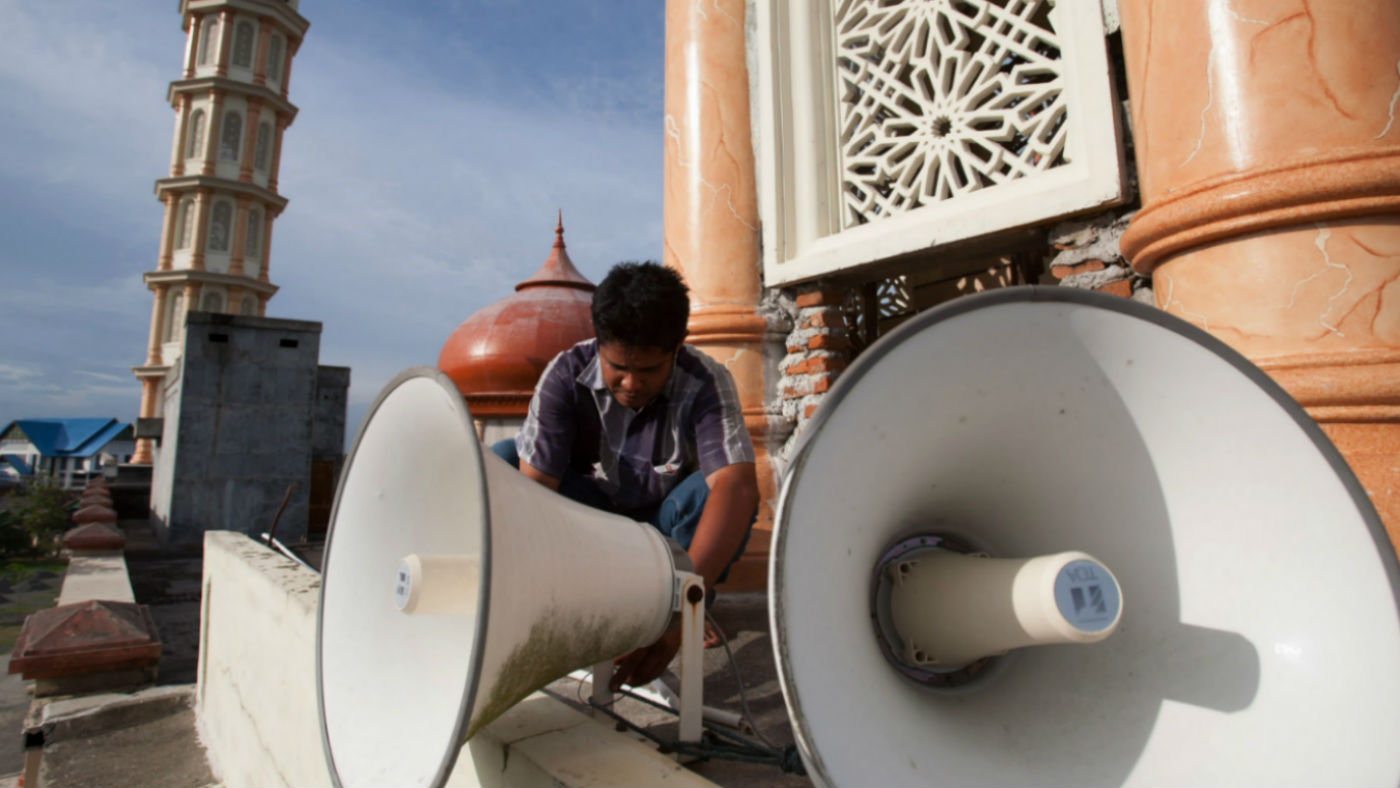Indonesian woman jailed for saying mosque’s speakers ‘too loud’
Noise complaint over call to prayer sparked anti-Buddhist riots in 2016

A free daily email with the biggest news stories of the day – and the best features from TheWeek.com
You are now subscribed
Your newsletter sign-up was successful
A Buddhist woman has been jailed by an Indonesian court for asking a mosque to turn down the volume of its call to prayer.
Meiliana, a 44-year-old Indonesian of Chinese descent, was convicted of blasphemy and sentenced to 18 months in prison by Medan District Court in North Sumatra yesterday.
In July 2016, she reportedly complained to a local mosque in her hometown Tanjung Balai that their adzan, or call to prayer, was “‘too loud’ and it hurt’ her ears”, says The Jakarta Post.
The Week
Escape your echo chamber. Get the facts behind the news, plus analysis from multiple perspectives.

Sign up for The Week's Free Newsletters
From our morning news briefing to a weekly Good News Newsletter, get the best of The Week delivered directly to your inbox.
From our morning news briefing to a weekly Good News Newsletter, get the best of The Week delivered directly to your inbox.
In many Islamic countries, the adzan is broadcast from mosques five times a day over loudspeakers.
The dispute escalated, and ultimately “triggered a mass riot in the area in 2016, when angry mobs burned down and damaged several Buddhist monasteries and temples”, the Jakarta Globe reports. Indonesia is home to around 1.7 million Buddhists, but they represent only a tiny minority of 0.8% in the populous nation.
Amnesty International’s Indonesian branch has described her conviction as “ludicrous”, and called for a higher court to reverse the verdict, which it calls a “flagrant violation” of free speech.
The prosecution “based its case on a fatwa issued by the local chapter of the Council of the Indonesian ulema [Islamic scholars], which had described Meiliana’s behaviour as ‘blasphemous’”, Asia News reports.
A free daily email with the biggest news stories of the day – and the best features from TheWeek.com
However, several high-profile Muslim organisations said the prison sentence was excessively harsh and disputed the court’s interpretation of blasphemy.
The Indonesia-based Nahdlatul Ulama, an independent group representing around 40 million Sunni Muslims, said that complaints about the volume of a mosque’s loudspeakers should not be considered an insult to Islam.
“I don’t think a complaint about the volume of a mosque’s speakers is an expression of hate or hostility towards a certain group or religion,” said Robikin Emhas, head of legal affairs and human rights on the group’s executive board.
He added that local Muslims should consider such complaints “constructive criticism” and be mindful of the concerns of “people with different ethnic and cultural backgrounds”.
Human rights activists claim that blasphemy laws are disproportionately used to target religious minorities.
Institute for Criminal Justice Reform executive director Anggara told the Jakarta Post that Indonesian blasphemy laws “are always used in a context where the defendant is considered to insult the majority religion”.
“Articles on blasphemy have to be formulated very carefully because they are closely tied to the subjective whims of the majority,” he said.